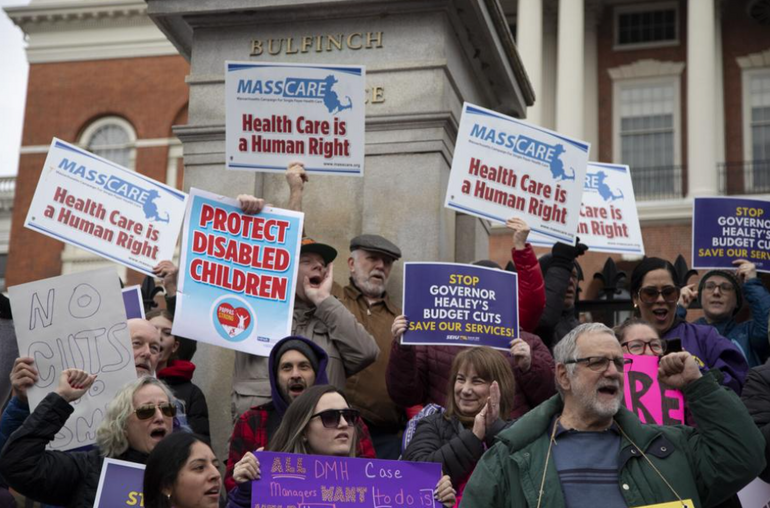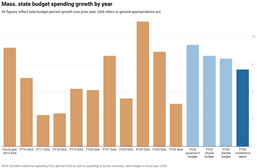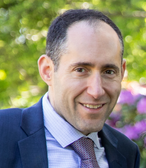Mass. budget pitch excludes job-saving provisions for mental health case workers
 Photo I Chris Lisinski/SHNS
Patients, labor advocates, and other opponents of hospital closures and mental health care caseworker cuts rally outside the State House on Feb. 25.
Photo I Chris Lisinski/SHNS
Patients, labor advocates, and other opponents of hospital closures and mental health care caseworker cuts rally outside the State House on Feb. 25.
Department of Mental Health case managers continue to face job uncertainty, after budget negotiators opted against explicitly staving off the massive layoffs that Gov. Maura Healey had proposed in January.
As DMH looks to redistribute resources amid swelling demand for inpatient psychiatric care, Healey's budget pitch called for slashing the case manager workforce in half -- from 340 to 170 employees -- to save the state $12.4 million. Case managers, who typically juggle about 25 cases, according to a top union official, have warned the cuts will lead to worse care outcomes for some of the state's most vulnerable residents.
While the House budget incorporated language that said "department case manager staffing levels shall not be reduced below fiscal year 2025 case manager staffing levels," the compromise package omits that job-saving provision and instead includes the muted protections embraced in the Senate budget.
Under the budget agreement unveiled Sunday by legislative negotiators, there's no specified number of case manager positions, according to House Ways and Means spokesperson Blake Webber.
"It is up to the Administration to allocate within the resources provided in the final compromise budget," Webber told the News Service.
However, DMH must submit monthly reports to lawmakers about case management positions and caseloads for child and adult clients. The reports will offer details about the number of active and inactive client cases; the active and inactive caseload for each case manager; the number of case manager and supervisor positions that are filled, vacant or on extended leave status; the number of in-person, phone or virtual encounters with each client for each case manager and supervisor; target caseloads and encounters; the number of clients on a waitlist; and the number of applications accepted and denied for case management services.
DMH must also submit a report at least 90 days before changing its care model for case management services. Officials are considering a more flexible, open-access model that departs from the traditional structure in which case managers are paired up with specific clients -- a change that Sen. Cindy Friedman, who sponsored the Senate language, has called "absurd."
In their original budget plans, the House and Senate Ways and Means committees did not directly intervene in the case management debate, as they cited ongoing labor negotiations with the Healey administration. Both branches later added safeguards through budget amendments.
The compromise budget steers about $132.4 million for DMH child and adolescent services, compared to the $115 million Healey had proposed. It also allocates $694.4 million to DMH adult mental health and support services, compared to Healey's $678.3 million proposal.
There have been no layoffs as of Monday, according to SEIU Local 509, which represents the case managers. The union has also not reached an agreement with the administration, spokesperson Natalia Garcia had told the News Service Thursday.
"We remain committed to protecting the vital services our members provide, and any agreement must include strong protective language to ensure that case management jobs are preserved," Garcia said in a statement. "We'll continue to advocate for a resolution that prioritizes both the workforce and the communities they serve."
During a radio interview last week, an independent clinical social worker asked Healey whether she would support protections -- specifically the House language, which did not emerge from the conference committee -- for DMH case managers in the final budget. The governor emphasized she is "not cutting mental health."
"I think the issue you're talking about is particular programming, and I just want mental health professionals deployed in the right places, and you know, where we're maximizing their talents and skills," Healey said Wednesday on GBH. "And if it turned out that there were case managers who were managing one case a day, you know, it seemed like there could be opportunities to ship them to other locations where they have more ability to help more people. So, we're looking at all of that now, but I will be very clear that I'm going to continue to fund, as I have as governor, mental health services."
Under new reporting requirements, DMH must also outline the "number of collateral activities" for each case manager and supervisor, which would tally how many interactions they have on behalf of individual clients -- including contacting various providers and court officers.
The compromise budget also provides funding to keep two state-run hospitals open: Pappas Rehabilitation Hospital for Children in Canton and Pocasset Mental Health Center on Cape Cod. Healey had initially proposed shuttering those facilities as cost-saving measures, but hit pause after public outcry.
The budget directs $31 million to Pappas and $4.8 million to Pocasset to maintain operations in the next fiscal year. Another $50,000 is earmarked to "improve the mental health rooms" at Pocasset.
The budget also calls for the creation of a legislative commission to analyze the future of Pappas. It stipulates that services cannot be reduced or eliminated, and that the hospital cannot close or be consolidated with any other facility, until the commission's report is submitted by Dec. 31, 2026.













0 Comments